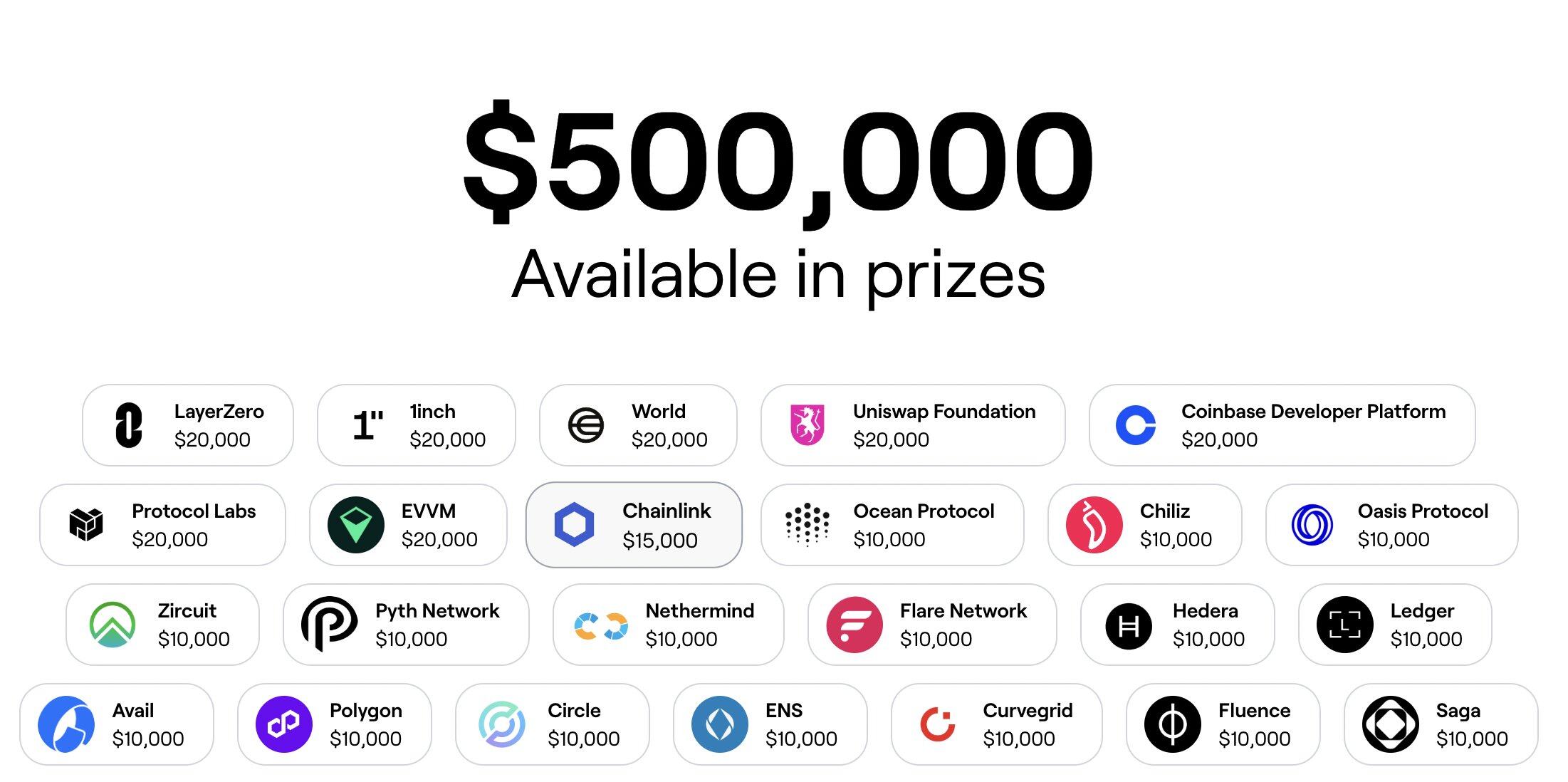Original text from Uttam
Translation|Odaily Planet Daily Golem (@web 3golem )_

If you have spent a few months in the cryptocurrency field, you may have realized that this industry is highly rewarding for developers. Unlike traditional tech industries where it may take years to achieve a promotion, the cryptocurrency sector is rapidly evolving, with salaries that are globally competitive and a greater emphasis on skills rather than connections or location.
Over the past few years, developers have become the backbone of the ecosystem. From NFTs and DeFi to re-mortgaging, modularity, and L2, every major narrative has been driven by those developers who showed up early, built, and persevered. The reasoning is simple: if you stick around long enough and keep building, this industry will reward you handsomely.
Here are the most practical and effective ways to make money as a developer, based on experience, observation, and how the ecosystem actually operates.
1. Get a Job (No Joke)
The simplest and most stable way to make money in the cryptocurrency field is to find a job. Cryptocurrency companies typically offer generous salaries, and most positions are remote.
This means that even if you are in a small town in India, the Philippines, or Brazil, you are likely to earn a salary comparable to that of developed countries. Positions such as full-stack developers, smart contract engineers, protocol developers, and infrastructure engineers often come with six-figure annual salaries, substantial token rewards, and flexible work arrangements.
All you need to equip yourself with are skills and curiosity—learn programming languages like Solidity, Rust, or TypeScript, build some demo applications, and contribute to open source. Once you have something to showcase, the doors of opportunity will open quickly; cryptocurrency startups are always looking for developers who can deliver results rather than just talk.
2. Participate in Hackathons: The Fastest Way to Earn Cash and Credibility
Crypto hackathons are like "ATM machines," with one happening almost every month. Platforms like ETHGlobal, Encode, Colosseum, DoraHacks, or Devfolio host hackathons with total prize pools ranging from $100,000 to $500,000.
And this is not out of reach; I have seen people participate in one hackathon and then immediately rush to another, earning $10,000 to $20,000 at each event. Once you understand what sponsors are looking for, such as integrated applications, creative use cases, or SDK adoption, you can keep winning.

ETH Global hackathon, with a prize pool of up to $500,000
But the real benefits happen after you win, as hackathons often open the door to incubators for developers, where you can receive ample funding, mentorship, and VC introductions. Many successful cryptocurrency startups got their start this way.
3. Grants: A Hidden Goldmine
Almost every blockchain, from Solana to Arbitrum to Base, has a grant program. These grants are non-dilutive funding (meaning you don’t have to give up equity) provided to developers building projects on their networks.
Some of these projects have large budgets, reaching millions of dollars. If you already have a functioning dApp, you can try applying for grants from multiple public chains. Many EVM-compatible blockchain networks will pay fees directly to contracts deployed on their networks.
This behavior is referred to as "grant farming," and while it may sound a bit "unethical," it is indeed feasible. Developers can earn tens of thousands of dollars simply by deploying their applications across different ecosystems.
4. Be a Project Owner, Even if "Copying"
This is an ideal path; you don’t need to completely reinvent DeFi to succeed. Sometimes, simply "copying" existing applications and adapting them to a new blockchain can lead to substantial profits.
Recently, there was an example of a simple Uniswap-like application deployed on a new EVM blockchain that earned over $5 million in just 30 days, with all income coming from gas fees and transaction volume. This is the charm of the crypto industry; sometimes execution and timing are more important than originality.
This requires developers to stay alert; when new networks launch, they often lack essential foundational features (DEXs, cross-chain bridges, NFT marketplaces), and being the first project owner can dominate a niche market and yield significant returns.
5. Farm Project Airdrops (Leverage Developer Advantages)
Airdrops are one of the easiest and most exciting ways to make money, and as a developer, you have a significant advantage.
While retail investors are still clicking buttons on testnets, developers deploying contracts or integrating SDKs will receive priority allocations for airdrops. Early on, blockchains and protocols often prefer to attract developers rather than just users.
If a new project hasn’t launched its token yet, developers should start building early, testing their stacks, providing feedback, and staying active. When their tokens go live, you will typically receive generous rewards.
6. Do Freelancing
Not everyone in the crypto industry understands technology; in fact, most people don’t, which is where developers come in. Almost every day, non-technical founders and blockchain projects are looking for freelancers or development teams to create their dApps, tools, or SDK integrations.
You can work directly with these clients or team up with a few friends to form a small development outsourcing team. New blockchain projects often reach out to these teams before their mainnet launches to ensure applications are up and running on day one. These collaboration opportunities often come with substantial rewards, especially if you are an expert in a particular field.
Freelancing, fixed contracts, and development project partnerships can easily turn into your full-time income source, sometimes even converting into token earnings later on.
7. Contribute to Open Source Projects
This is also a unique opportunity in the crypto industry, where developers can be rewarded (or airdropped) for their open-source contributions. Projects like Celestia, EigenLayer, and Succinct sometimes offer life-changing rewards to developers, even for contributions to Ethereum clients or documentation.
In addition to potential rewards, contributing to open source can enhance a developer's reputation and network, making it one of the few ways to learn while earning.
8. Security Programs and Bug Bounty Programs
If you are skilled in auditing or debugging, this is your paradise. Many protocols run ongoing security bounty programs where developers can earn rewards by discovering vulnerabilities or inefficiencies.
Web3 platforms like Immunefi or Code4rena host competitive audits with prize pools reaching hundreds of thousands of dollars. Even small issues can earn rewards ranging from $1,000 to $10,000, depending on severity. This is a great way to gain deep insights into protocol architecture while earning substantial rewards.
9. Develop Tools for Other Developers
One of the smartest ways to profit long-term in the crypto industry is to build open-source tools that address real pain points for developers. Think of practical tools like contract verification tools, SDK wrappers, testing frameworks, or analytics dashboards. These small tools can save others time, and once your tool is adopted, you can monetize it through sponsorships, donations, or integrations.
Projects like Wagmi, Hardhat, and Viem started as open-source projects, but now their maintainers can receive funding from foundations, ecosystems, or even corporate partners. One of the best examples is apoorv.eth building swiss-knife, which he positioned as a public good and has gained widespread adoption in the developer community over time. This visibility has qualified him for multiple rounds of funding, from Optimism RetroPGF to Gitcoin grants, proving that open-source projects can both make an impact and generate substantial profits.
The allure of open source in the crypto industry is that exposure equals opportunity; your GitHub followers and community influence will become your leverage. Every pull request, issue, and release can attract new job opportunities, funding proposals, or even investors wanting to fund your continued development.
10. Sell Courses to Other Developers
If you are a developer who can teach, this path is perfect for you. Educating other developers through YouTube videos, Twitter, workshops, or newsletters can yield substantial returns.
Once you have a loyal developer following, certain projects will proactively reach out to you for collaboration or sponsorship to promote their SDKs or integrations. The value of a developer audience is ten times that of regular retail investors, so typical projects need to pay a premium to reach them.
You can combine education with your development work, sharing your learning experiences, showcasing your projects, helping others, and building a strong, monetizable personal brand.
Conclusion: Developers Are Always the Winners
Becoming a crypto developer today is akin to being a software engineer in Silicon Valley in 1998, except crypto developers are more global, faster, and more open.
This profession may be unstable and even chaotic, but it is also fair. This industry rewards those who actively participate, learn, and build. Whether you choose to work full-time for a protocol, release open-source tools, or apply for grants, one thing is certain: as long as you persist, the money will find you.
So, grab your laptop, start small, stay curious, and remember that in the crypto industry, developers are always the winners.
免责声明:本文章仅代表作者个人观点,不代表本平台的立场和观点。本文章仅供信息分享,不构成对任何人的任何投资建议。用户与作者之间的任何争议,与本平台无关。如网页中刊载的文章或图片涉及侵权,请提供相关的权利证明和身份证明发送邮件到support@aicoin.com,本平台相关工作人员将会进行核查。




